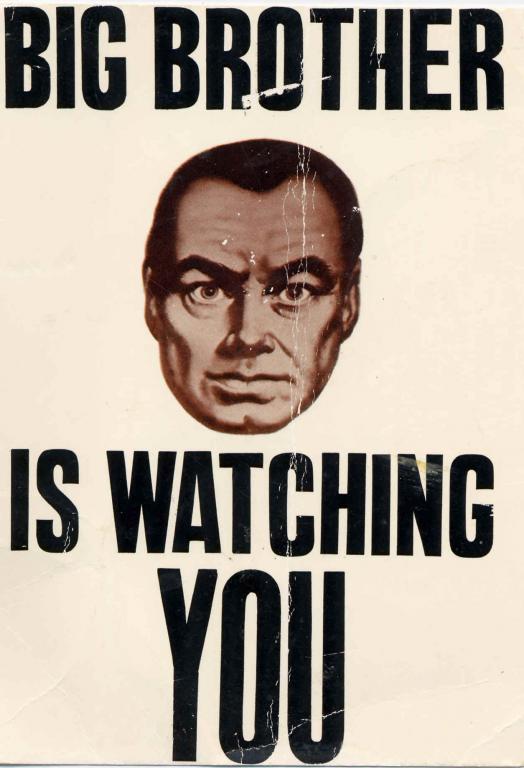1984 is one of those classics about which references are always being made, and it seems like everyone has a general idea of the plot, whether or not they've read it.
I knew it was one that I needed to read, but had always put it off, thinking it would be too depressing. I am so glad I finally read it and recommend it wholeheartedly. If you've not read it, make this the next book you do read!

While Orwell's dystopia is a terrible place, the book was not so much distressing as thought-provoking. Like Bradbury's Fahrenheit 451, I also found it disturbingly prophetic. NewSpeak made me think of the horrible text message shorthand, and the Ministry of Peace was frighteningly similar to the way current governments present the need for war. As for the Two Minutes Hate. . . How often have we seen a more subtle version of this in the recent past?!
I thought a great deal about how easily people can be "brain-washed" into living in horrid situations or doing vile acts by the government or other powerful institutions--good people, too, with honest intentions who think they are doing the right thing.
I thought about the fact that Orwell wrote this not long after the ending of World War II, and how Hitler's Germany must have been foremost in his mind.
I also thought about the control of history; the victors always write (and sometimes rewrite) history. This is nothing new, and continues to this day.
 I felt frightened at times, by how similar some of the situations were to today's society.
I felt frightened at times, by how similar some of the situations were to today's society. I was enthralled by Orwell's prose; I had expected it to be dusty, dry, and yet it was alive and relevant.
I was enthralled by Orwell's prose; I had expected it to be dusty, dry, and yet it was alive and relevant.I felt so much sadness for Winston; he was so real to me that I was emotionally invested in his journey.
I did feel confused by the Party requirements, and struggled to comprehend it fully. I felt that it would have been better if Orwell had given that explanation early in the book, and more completely. However, who am I to judge?! I assume he had an excellent reason for waiting as long as he did, and my lack of understanding was the fault of the reader, not the writer.
"The horrible thing about the Two Minutes Hate was not that one was obliged to act a part, but that it was impossible to avoid joining in."
"Nothing was your own except the few cubic centimeters inside your skull."
"If the Party could thrust its hand into the past and say of this or that event, it never happened — that, surely, was more terrifying than mere torture and death?"
"The object of waging a war is always to be in a better position in which to wage another war."
"A peace that was truly permanent would be the same as a permanent war. This—although the vast majority of Party members understand it only in a shallower sense—is the inner meaning of the Party slogan: War is Peace."
"All rulers in all ages have tried to impose a false view of the world upon their followers."
"We know that no one ever seizes power with the intention of relinquishing it. Power is not a means; it is an end. One does not establish a dictatorship in order to safeguard a revolution; one makes the revolution in order to establish the dictatorship. The object of persecution is persecution. The object of torture is torture. The object of power is power."
"WAR IS PEACE
FREEDOM IS SLAVERY
FREEDOM IS SLAVERY
IGNORANCE IS STRENGTH"

 .
.
No comments:
Post a Comment
Hi there and thanks for commenting! Sometimes my email flags comments as spam despite my settings, so if your comment doesn't show up right away, it may be that I will have to manually approve it. I look forward to chatting with you!